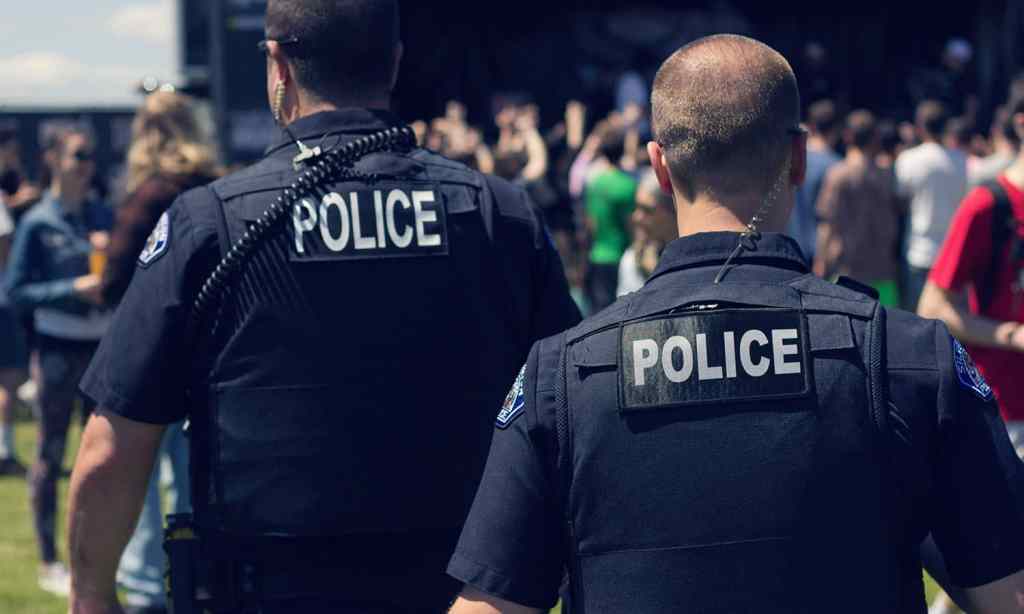The Black Lives Matter movement exists as a necessity to bring attention to social justice causes, to combat police brutality incidents and fight for racial equality for BIPOC. Conversations around Black Lives Matter must continue until these are achieved, and must be held among all long after.
While the hashtag #BlackLivesMatter has continued to trend since the reckoning that followed the death of George Floyd earlier this year, a second and similar hashtag has made its way into conversations as of late. Only, the sentiments behind these movements are fairly incomparable. And some would argue the ‘Blue Lives Matter’ movement is but a knee-jerk and racist reaction to Black Lives Matter.
What is Blue Lives Matter?
Blue Lives Matter is a countermovement to Black Lives Matter, founded in 2014 by three police officers. The phrase began picking up steam again in 2020, around the same time Black Lives Matter protests began globally in peaceful objection to systemic racism and Black lives lost in custody.
The Blue Lives Matter movement advocates for the protection of police officers and petitions for crimes against the police to be considered as hate crimes.
In the US, the ‘hate’ in hate crime refers to a bias against people or groups with specific characteristics determined by the law.
“At the federal level, hate crime laws include crimes committed on the basis of the victim’s perceived or actual race, color, religion, national origin, sexual orientation, gender, gender identity, or disability.”
Generally speaking (a state law exists in Louisiana that makes it a hate crime to target police officers, firefighters, and emergency medical service personnel), hate crimes do not refer to a person’s choice of career. Being a police officer is a job and not a person’s identity.
Why people take issue with Blue Lives Matter
The Blue Lives Matter movement is controversial because it implies that working in law enforcement is equivalent or analogous to being Black.
Police officers do not have a long-running history of oppression, enslavement and racial discrimination. Authority figures have not been stripped of their rights and treated unjustly for the colour of their skin.
On the contrary, police officers are, for the most part, respected and awarded favourable treatment. As Jonathan Russell points out in an article entitled Here’s What’s Wrong With #BlueLivesMatter for HuffPost: “Blue lives have always mattered, present and past. Their experience of social space is (again, for the most part) one of profound privilege and deferential treatment.
“This is not to justify such mistreatment, or say that police officers should not be honoured and respected, but simply to say that they are. Their experience of the world is, in many ways, constitutively different than the lives of those who are judged as social dangers by their very appearance and existence.”
Furthermore, there is undeniable evidence to suggest that crimes against law enforcement have declined over past decades.
More resources for further reading on Black Lives Matter and issues of racism in Australia and around the world:
Resources So You Can Do ‘The Work’ and Self-Educate on Issues of Race
How to Actively Show Up for BIPOC
How to Get Involved With the Indigenous Community in Your Local Area
Read, Listen and Learn: Steps You Can Take to Be An Anti-Racist Ally
Indigenous Australian Films to Watch, Learn and Support
Learn More About Indigenous Australians and Their Culture With These 6 Podcasts
10 Indigenous Organisations and Campaigns You Can Support Through Donations
How to Talk to Your Kids About Racism
Indigenous Australian Artists and Makers to Support and Shop
Indigenous Australian Designers to Shop and Support
Black-Owned Indie Beauty Brands to Support
How to Show Up in the Long-Term for Those Brands You Just Followed
Read more stories from TheLatch— and follow us on Facebook.

